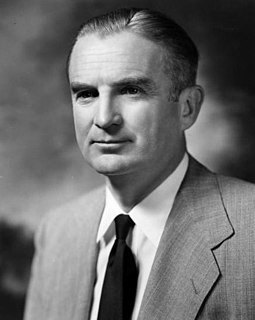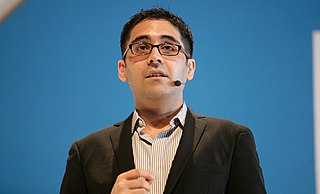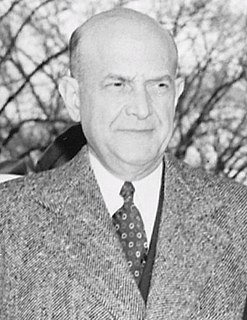A Quote by Stuart Symington
I had learned many years ago in private business never to take responsibility without adequate authority; and the new Secretary of Defense, as budgets were sharply cut, quickly found that out.
Related Quotes
Yes, business really does change. 400 years ago, corporations were formed by royal decree. 300 years ago, many countries were powered by slave labour, or its closest moral equivalent. 200 years ago, debtors didn't go bankrupt, they went to prison. 100 years ago - well, business is largely the same as it was a century ago. And that's exactly the problem. Business hasn't changed, but today's array of tectonic global shocks demands a different, radically better kind of business. Yesterday's corporations visibly cannot meet today's economic challenges.
I'm pleased that I've balanced budgets. I was on the world of business for 25 years. If you didn't balance your budget, you went out of business. I went into the Olympics that was out of balance, and we got it on balance, and made a success there. I had the chance to be governor of a state. Four years in a row, Democrats and Republicans came together to balance the budget. We cut taxes 19 times and balanced our budget.
It never occurred to me that there were so many wonderful photos that had been orphaned and were out there in the world, waiting to be found. Over time, I found a lot of very strange pictures of kids, and I wanted to know who they were, what their stories were. Since the photos had no context, I decided I needed to make it up.
I would never take a case that had to do with abusing children. They're the true innocents. All of the rest of us, we have smears and stains, but they're helpless. I couldn't add my talent, which is prodigious, to a defense of someone even accused of hurting a child. I would never defend a cop - though I did on a few private cases, when cops were acting not as cops but as private citizens. Other than that, I represented everybody who came by.
I'm the first secretary of defense that's had to deal with sequestration. I've prepared two budgets that deal with sequestration. And you bring the chiefs together, the leadership of this enterprise together, to work through, how do we then take these cuts? Where do we apply those cuts? Readiness is the first thing that suffers.
I learned to live many years ago. Something really, really bad happened to me, something that changed my life in ways that, if I had my druthers, it would never have been changed at all. What I learned from it is that today seems to be the hardest lesson of all. I learned to love the journey, not the destination. I learned that it is not a dress rehearsal, and that today is the only guarantee you get. I learned to look at all the good in the world and to try to give some of it back because I believed in it completely and utterly.



































